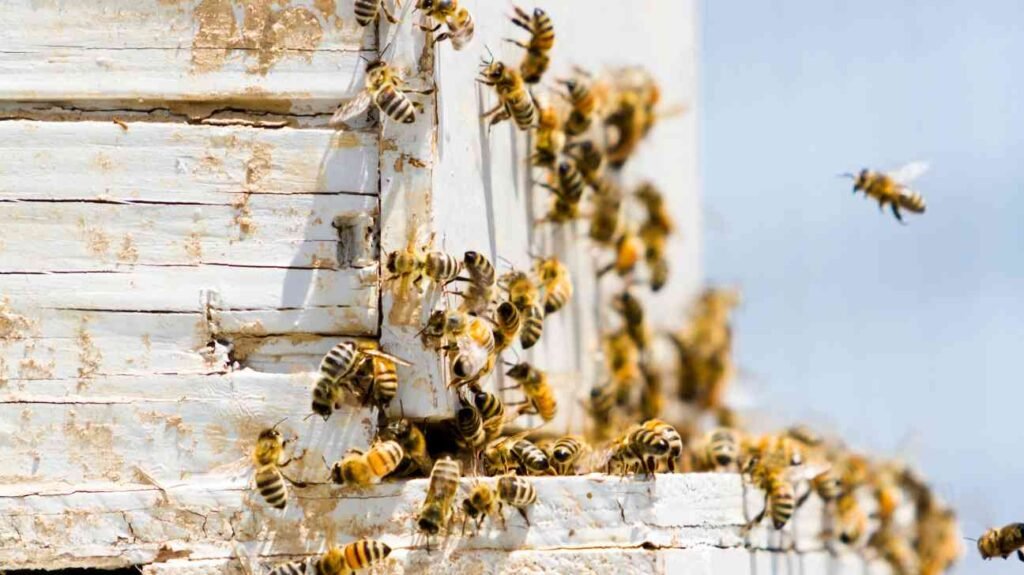Beekeeping is a fascinating and rewarding hobby that not only supports the environment but also provides a steady supply of honey and other bee products. However, as with any new endeavor, beginners often face a steep learning curve, and mistakes are bound to happen.
Mistakes Made as a Beekeeping Beginner
In this article, we’ll explore some common mistakes made by beekeeping beginners and the valuable lessons they can teach us.

Lack of Proper Research and Preparation
One of the most significant mistakes made by novice beekeepers is diving into beekeeping without adequate research and preparation. Beekeeping is more than just placing a hive in the backyard and waiting for the bees to do their thing. It requires a thorough understanding of bee behavior, hive management techniques, seasonal changes, and local regulations.
The Lesson: Before embarking on the beekeeping journey, aspiring apiarists must invest time in reading books, attending workshops, or joining local beekeeping clubs. Knowledge gained through research will help them make informed decisions and avoid unnecessary hardships.
Neglecting Protective Gear
Safety should be a top priority when working with bees, but many beginners underestimate the importance of protective gear. Bee stings can be painful and, in some cases, lead to severe allergic reactions. Ignoring proper protection can quickly sour a beekeeping experience.
The Lesson: Investing in a full beekeeper suit, gloves, and a sturdy veil is essential. Though it may feel uncomfortable initially, the protection provided will allow beekeepers to work confidently and without fear of stings.
Poor Hive Placement
The location of beehives is crucial for the well-being of the bees and the productivity of the colony. Novices often place hives in unsuitable areas, such as spots with excessive direct sunlight, strong winds, or inadequate forage nearby.
The Lesson: Select a sheltered location with partial shade and consider the local flora for a good supply of nectar and pollen. Keeping hives away from human and pet traffic also prevents disturbances and reduces the risk of stings.
Overlooking Regular Hive Inspections
Some beginners mistakenly believe that bees can thrive without much human intervention. While bees are relatively self-sufficient, regular inspections are essential to monitor the health of the colony, identify potential issues early on, and prevent problems from escalating.
The Lesson: Beekeepers should establish a routine for hive inspections, adhering to seasonal patterns and local climate conditions. Consistent monitoring will ensure that the bees have ample space, sufficient food, and a healthy environment.
Improper Feeding Practices
New beekeepers may not realize that bees need supplemental feeding, especially during periods of nectar scarcity, such as early spring or late winter. Failure to provide adequate nutrition can weaken the colony and put it at risk of starvation.
The Lesson: Understanding when and how to feed bees is essential. Beekeepers should learn about various feeding methods, such as sugar water or pollen patties, and be proactive in providing support when natural food sources are limited.
Overharvesting Honey
It’s tempting for beginners to be overzealous when it comes to harvesting honey. Taking too much honey from the hive can leave the bees without enough food for the winter and jeopardize the colony’s survival.
The Lesson: Beekeepers must exercise patience and restraint when harvesting honey. They should learn how to estimate surplus honey and leave enough for the bees to sustain themselves through colder months.
Inadequate Pest Management
Pests and diseases are a common threat to bee colonies. Ignoring or not effectively managing these issues can lead to the decline or collapse of the hive.
The Lesson: Beekeepers must educate themselves about common pests and diseases and establish an integrated pest management (IPM) plan. Regularly monitoring and treating for pests will help keep the colony healthy and thriving.
Conclusion
Beekeeping, like any other skill, requires time, patience, and a willingness to learn from mistakes. As beginners gain experience and knowledge, they can transform these early missteps into valuable lessons that will serve them well in their journey as beekeepers. By conducting thorough research, prioritizing safety, and practicing proper hive management, novices can build strong, thriving bee colonies and enjoy the sweet rewards of beekeeping for years to come.
